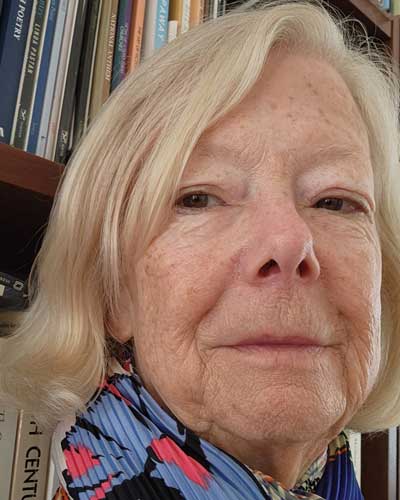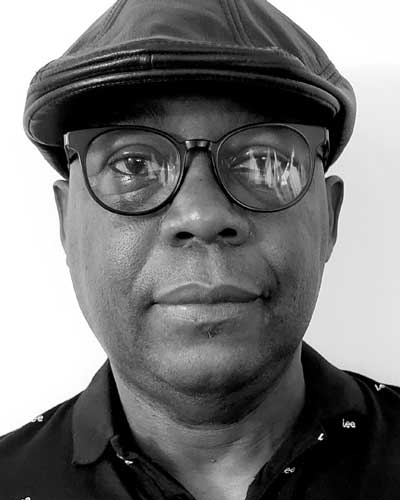Charles Dickens



Dickensian upbringings, featuring work by Margo Davis, Eaton Jackson and Richard Moore.
7 minutes
TRANSCRIPT
British novelist Charles Dickens was born Feb. 7, 1812. He’s best known for David Copperfield, Oliver Twist, Nicholas Nickleby, Great Expectations, Bleak House, “A Christmas Carol,” and lots more. Many of his books were grounded in social inequities of the time, and many of his characters, especially children, suffered from those inequities and the cruelness of the world around them. On this episode of Burning Bright, three pieces evocative of the world of Charles Dickens.
Let’s start by setting the scene. Imagine growing up in this house that Margo Davis writes about in her poem “So Close.”
The house rested in a lax mud-stained
slingshot the landlord called a cul de sac.
The front door tugged at rusty hinges.
If there had been a back door
it would have opened to a ditch of stuttering
crickets. I slept so close to the rail ties
that a Conductor could hand off mail bags.
Only who would write us?
Almost blocking the front door
a five-foot stack of paneling teetered
like kindling. One by one
we would pass around this chipped plate
with an unlabeled tin sliding
across it. Maybe canned spam. Or
suspect fish the stray avoided. We shared
the metal spoon. Each of us
in turn would sit in the blown-out
wicker chair the grumpy man next door
left for trash. I would hope for
a fry pan, a lid sporting a knob. Dibs
on spoons, any size!
Each sunset he would
rush the long narrow diving board
of a driveway then balk, as if finding
the pool had been drained.
Margo Davis’s poem “So Close” from the forthcoming Winter 2025 issue of Passager.
In those Victorian working-class slums that Dickens wrote about, terrible things happened.
Eaton Jackson said that his poem “My Conception” “. . . is a reflection on incest and unreported rapes. In covering up these atrocities, it may very well make us complicit.”
My conception was not of love but of atavistic scars,
of spreading-eagle grip
stretching the curled-up corners of the weak, and my
conception was fangs into the pliable.
No hum-along
‘love-child’ allegories.
Just the ripping of naivety from sinews,
sinews from bones,
my conception
was never-to-be-discussed-locked-away
somewhere.
Because
my conception was a biting mouth someone
trying to smother escaped pieces of a cry someone
tried to snuff out an asphyxia almost
an unreported rape,
those in the know, mummified-like, cleaned and washed
the wounds, sticking euphemism over the bleeding
that wouldn’t clot
my conception
continues, a wild circling.
From Passager Issue 74, the Trauma Issue, Eaton Jackson’s poem “My Conception.”
In addition to the tragic child characters in Dickens novels are a collection of quirky adults—Mr. McCawber, Madam Defarge, Mr. Bumble, Uriah Heep, Miss Havisham, and on and on.
Here are a few excerpts from Richard Moore’s story about a quirky character, “The Facts of Great-Uncle Wilfred.”
My Great-uncle Wilfred had been in the war, and was mad enough to be considered peculiar and terrifying. We lived round the corner, and when I was a child my mother would take me with her to see him, to check he was okay, or even perhaps, that he was still alive, for by then he was an old man.
Once, when we could hear rats scuttling about in the cellar below, he said, “Rats can chew through metal. It’s a fact!” Another time, he declared, “The days of our years are threescore years and ten. It’s a fact!” At the time I was probably about six and had no idea what he meant. Later, though, I realized it wasn’t a fact, because he himself was 78 when he said it.
He saved his most gruesome ‘facts’ for when my mother left the room. Either when he heard the stairs creaking as she made her way to the bathroom, or we could hear her in the kitchen filling the kettle, he would beckon me close and say something that would either terrify me or fascinate me.
Once he said, “If you cut a cockroach’s head off it can still live for a week!” and he handed me a matchbox bound by rubber bands, inside which I could hear a cockroach scratching about. “If someone chops off your head you stay conscious for several seconds, enough to see your own headless body running around. It’s a fact!”
Mum was in the kitchen. I could hear the kettle whistling and I remember praying that she would hurry up, make the bloody tea and bring it in before he told me anything else. But before she did, he had time to tell me, “They’ve made lampshades, you know, out of human skin with feet and shins used as lamp stands.” He shook his head as he said it and glanced at me with a look that suggested resigned sadness, but a smile flickered across his lips that also indicated a certain delight in telling me. I quickly looked away and saw the lamp on the sideboard with its translucent lampshade looking remarkably like human skin, dotted with dead flies like tattoos, and I was convinced there was even a nipple in it.
Excerpts from Richard Moore’s story, “The Facts of Great-Uncle Wilfred” also from Passager Issue 74, the Trauma Issue.
To subscribe to or learn more about Passager and its commitment to writers over 50, go to passagerbooks.com. You can download Burning Bright from Spotify, Apple and Google Podcasts, and various other podcast apps. Passager offers a 25% discount on the books and journal issues featured here on Burning Bright. Visit our website to see what’s on sale this week.
For Kendra, Mary, Christine, Rosanne, and the rest of the Passager staff, I’m Jon Shorr.




A wonderful shout-out to Dickens in the language of today.
Loves these poems!